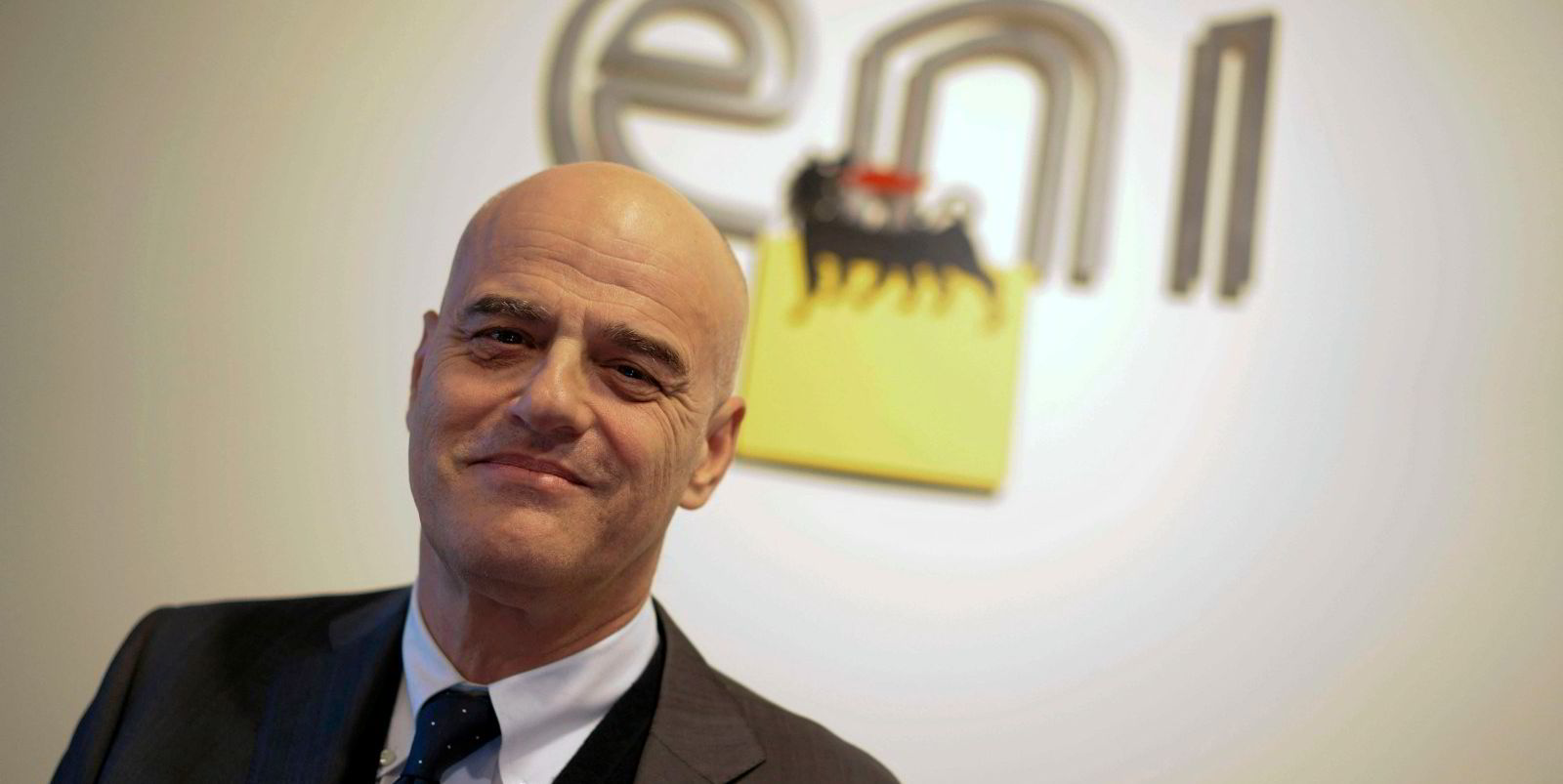Italy’s Eni became the latest oil and gas major to commit to the full decarbonisation of all its products and processes by 2050.
The Milan-based company also said it will merge its renewable and retail businesses, and boost its renewable generation fleet to 4GW by 2024, 15GW by 2030, and 60GW by 2050.
Get the market insight you need into the global oil & gas industry's energy transition – from the new newsletter from Upstream and Recharge. Sign up here
Eni last year had already pledged to reduce the emissions of its products by 80% by 2050, and had targeted to build more than 55GW of renewable energy capacity by then. But the company now stepped up its decarbonisation ambition after peers such as BP, Shell or Repsol had presented stricter climate plans.
“Our plan is concrete, detailed, economically sustainable and technologically proven,” chief executive Claudio Descalzi said.
“Additionally, the combination of our bio-refining and marketing businesses will play an important role in delivering sustainable mobility. These initiatives will greatly contribute to the decarbonisation of our products, impacting positively on our customers.”
The gradual shift in focus of Europe’s deep-pocketed oil and gas giants towards lower-carbon activities and their massive build-up green power capacity is also reshaping the renewable energy sector, with the potential of squeezing smaller developers out of large offshore wind zone tenders.
Offshore wind
Eni itself in November had said it will bid in Norway’s upcoming offshore wind tendering round as part of the Vårgrønn joint venture with Norwegian energy investor HitecVision. In December, Eni announced the purchase of a 20% stake in the giant Dogger Bank A&B wind projects in the UK part of the North Sea.
Other oil majors, such as Equinor or Shell already are major players in offshore wind development.
Eni’s stepped up climate pledge came just days after former European Central Bank president Mario Draghi became the new prime minister of Italy with a pledge to form an “ecological government” and use great parts of more than €200bn ($243bn) in EU recovery funding to boost the energy transition.
The Italian government owns close to a third and a golden share in Eni.
As part of its new strategic plan through 2024, Eni also announced that natural gas will represent more than 90% of its production in the long term. The company sees gas as a back-up of intermittent renewable energy sources.
Despite its long-term decarbonisation pledge, Eni still has committed only €1bn per year through 2024 in capital expenditure for retail and renewables combined, compared to about €18bn over four years for its natural resources unit that includes oil and gas upstream activities.


